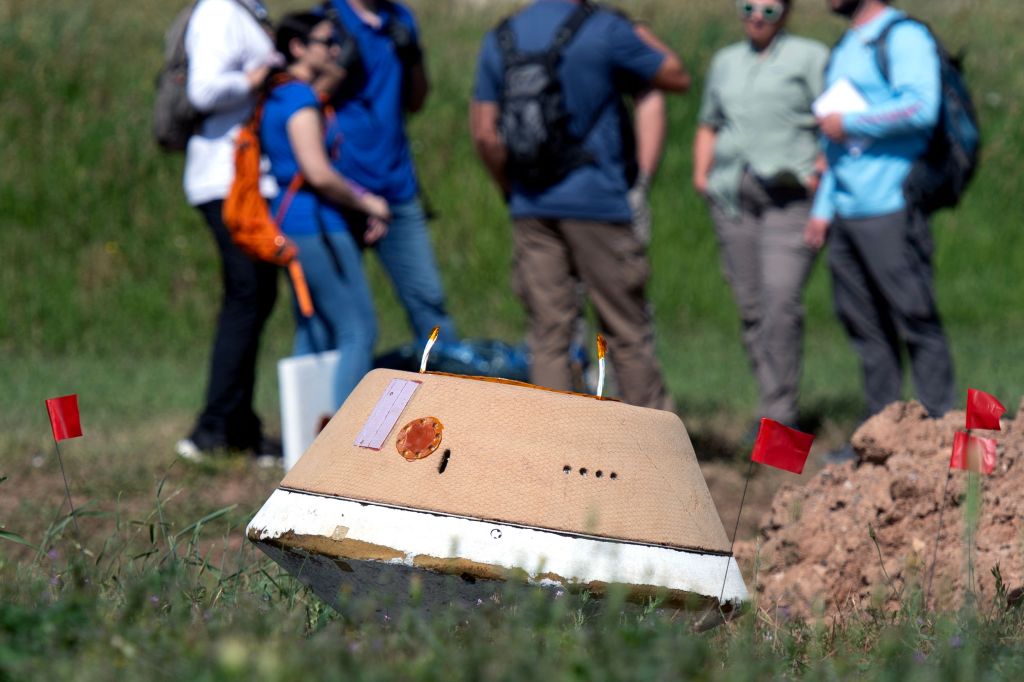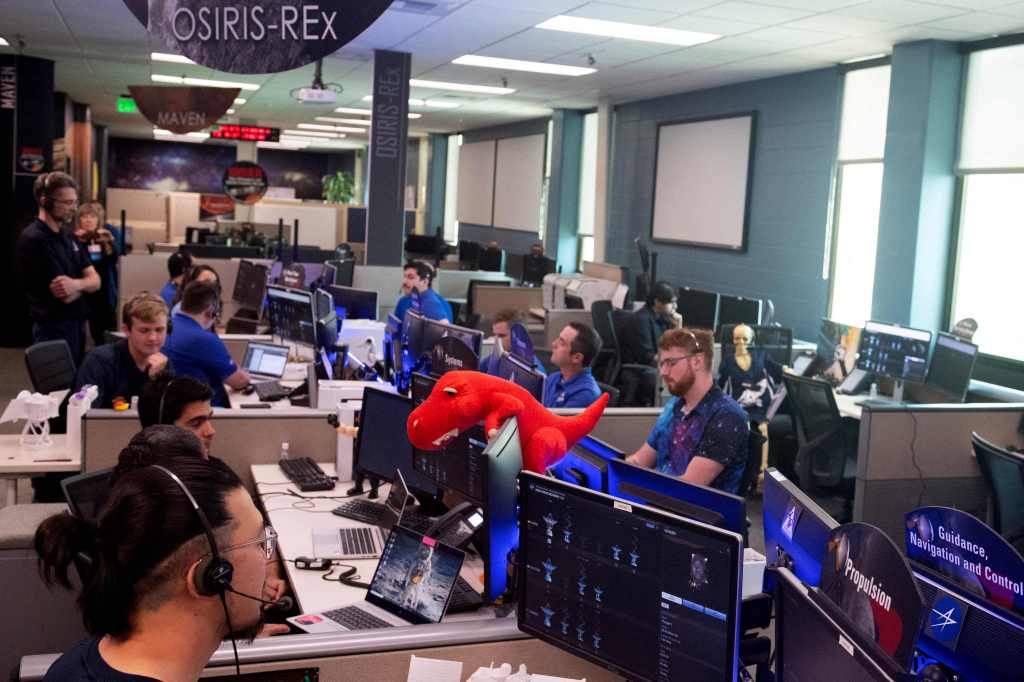NASA predicts large asteroid could smash into Earth in 159 years
NASA scientists have predicted there is a chance that a massive asteroid they have been tracking could smash into earth in the year 2082, potentially devastating an area the size of Texas.
Bennu, a Near-Earth Object (NEO), orbits the earth roughly every six years and has been on the space agency’s radar since 1999 when it was first discovered.
There have been three close encounters involving Bennu in 1999, 2005, and 2011, scientists said.
On September 25, 2135, Bennu will make a close fly-by past Earth and has a miniscule chance through a pass through a “gravitational keyhole” that would send the space rock on a collision course for the planet in 2182 — 159 years from now.
A paper from the OSIRIS-REx science team gives Bennu just a 1 in 2,700 chance — or 0.037% — of impacting Earth on September 24, 2182.

The impact of the asteroid, which is about a third of a mile wide, could ravage a massive area of Earth’s surface and unleash the energy of roughly 22 atomic bombs, according to Earth.com.
The blast would still only be a fraction of the impact of the massive asteroid believed to have wiped out the dinosaurs 66 million years ago, which is estimated to have been about 6-miles wide.
OSIRIS-REx – an acronym for Origins Spectral Interpretation Resource Identification Security Regolith Explorer – briefly landed a craft on Bennu and collected about 2 pounds of rock and dirt samples in 2020.

The first asteroid sample collected is expected to crash land in Utah on Sunday, according to ABC News.
Astrophysicist Hakeem Oluyesi told the outlet the completion of the 7-year mission will change what people know about the origins of our solar system.
“This is pure untainted material revealing early solar system secrets. A longshot discovery would be finding biological molecules or even precursor molecules for life,” Oluyesi said.
Read the full article Here


